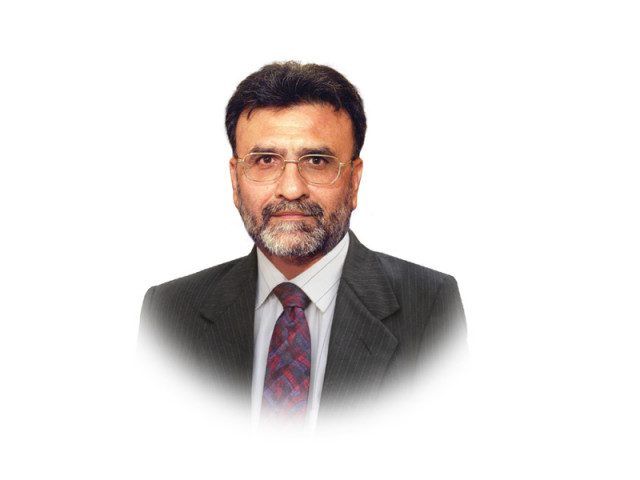True scion of the crony elite takes a reality check
Hardly after a year of appointing him, Musharraf started to feel agitated about the laidback conduct of Jamali.

Hardly after a year of appointing him, though, Musharraf started to feel agitated about the laidback conduct of Jamali. Eventually, he was also made to suspect as if his humble pretending nominee to Prime Minister’s Office was cunningly trying to cultivate his own patrons in Washington. He asked him to resign and Jamali did oblige without much ado.
As a true scion of the crony elite, Jamali needs no tutor for discovering the limits of elected civilians in this country and he behaved too honest by admitting the same while speaking on the National Internal Security Policy (NISP) in the national assembly Thursday evening.
For another day, the house looked ominously hallow and near vacant. That reiterated the reality that our representatives did not feel so excited about the NISP, which the third Nawaz government wanted to promote as the first-ever attempt to take control of things strategic by elected civilians.
Instead of delivering an insipid speech, Jamali came straight to reminding the government that “forces with real power” do not sit in the national assembly. Instead of presenting the NISP “to us for approval,” the government should rather consult “them” thoroughly. Otherwise, he forewarned, “this NACTA thing can always turn into a neck-tie (which could be pulled to strangle some) wearing the designers’ suits these days.”
Ejazul Haq was the next speaker and as a devout successor of General Zia, he spoke for long in defending the widely spread network of Maddaris (the religious schools). He contemptuously rubbished suspicions that Maddaris promoted extremism and with the help of various anecdotes tried hard to project them as compassionate institutions run by pious and charitable hearts and I preferred slipping out of the press gallery.
Most ministers were clueless about what had really been decided during the breakfast meeting that the Prime Minister held Thursday morning with members of the committees established to find means to restoring peace through negotiations. All of them vigorously defended the decision of formally inducting military officials in a protracted-looking peace process, however.
At least two ministers candidly admitted that only the military could effectively deal with three principal demands that Maulana Sami-ul-Haq had repeatedly articulated on record: release of non-combatants, compensation for damages caused by successive military operations and withdrawal of troops from some positions in tribal areas. Yet they felt jittery when cynically told that by involving the military in peace process, the Nawaz government had in effect conceded that there certainly were areas that remained no-go for elected civilians.
Like many of my colleagues, anyway, I was more interested to find out the latest on Dasti’s antics. Reliable sources claimed that he did meet some of the seven-member committee Thursday morning. The Speaker national assembly had established this committee to look into ‘the material’, Dasti claimed to have collected to substantiate the allegation that the officially provided and furnished residential quarters of our representatives in Islamabad looked like “the dens of debauchery and vice” these days. Dasti had refused to attend the inaugural meeting of the said committee Wednesday. He seemed to be having second thoughts, though, for multiple reasons. A story told by another honorable member of the national assembly, Irfan Dogar, regarding an unpleasant incident on the entrance of parliamentary lodges some days ago, has apparently not mellowed down Dasti. Far more disturbing to him remained the news that the District Administration of Muzzafarghar had “suddenly turned serious” to pursue formally filed complaints and duly registered FIRs against more than a score of Dasti’s close relatives and known cronies for committing serious crimes. After filing a two-day leave from the national assembly, Dasti had now rushed to Muzzafarghar to protect his relatives and cronies.
Published in The Express Tribune, March 7th, 2014.



















COMMENTS
Comments are moderated and generally will be posted if they are on-topic and not abusive.
For more information, please see our Comments FAQ